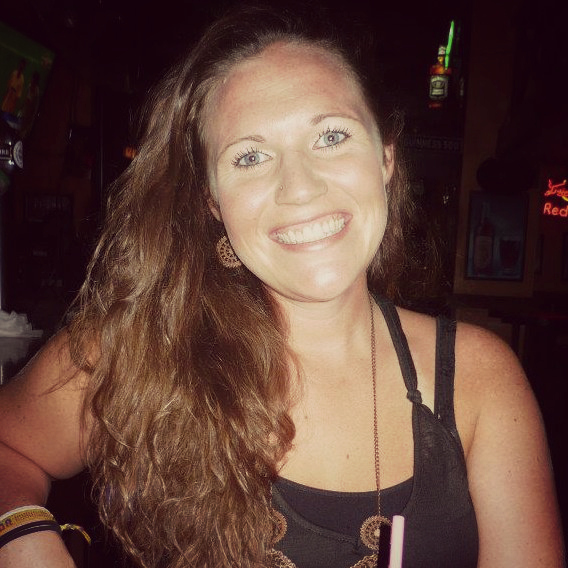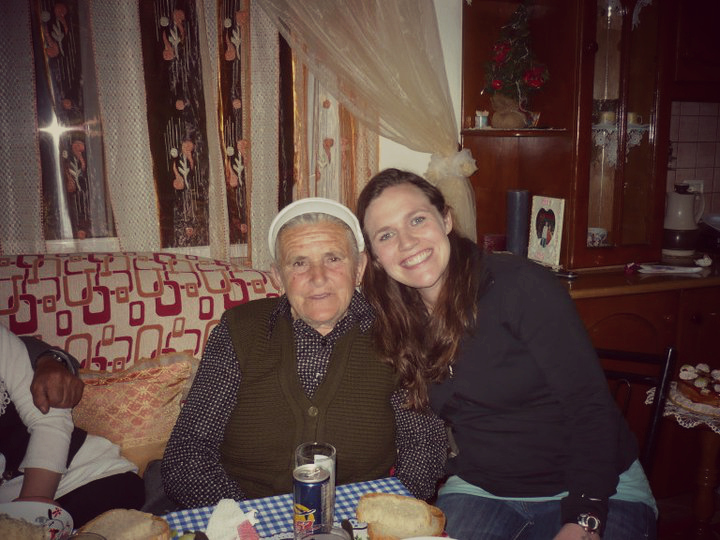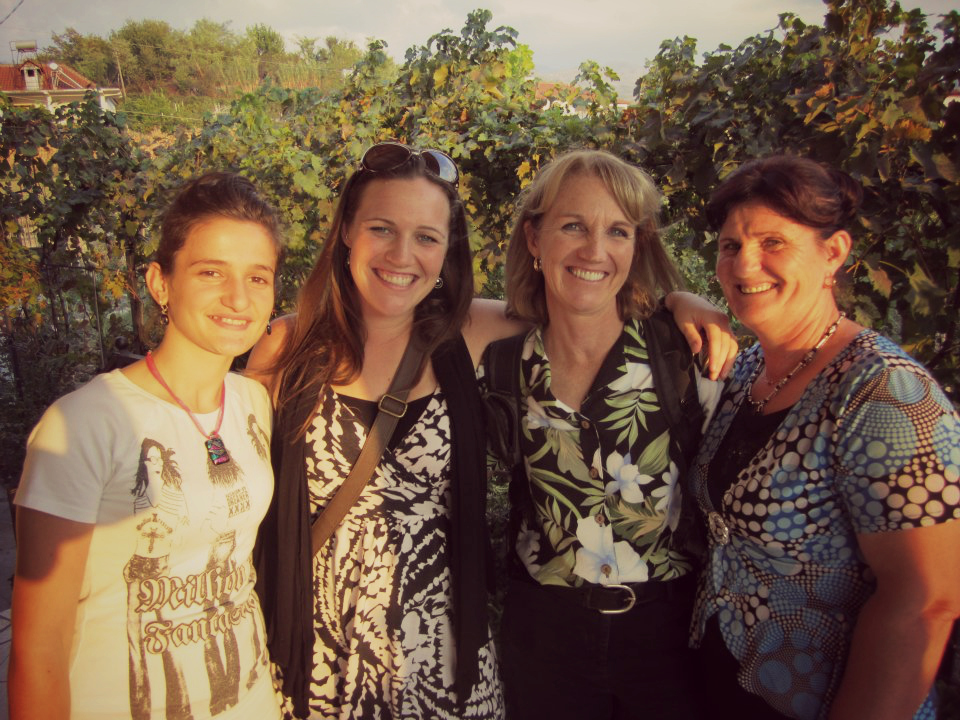Kimberly Townsend
M.A. English: Literature, Peace Corps Masters International (PCMI), Fall 2013

How did your major prepare you for the job, the life you have now?
Currently, I work as a Management Support Assistant in the Office of Curatorial Affairs (OCA) at the Smithsonian’s National Museum for African American History and Culture (opening in 2016). In this role, I act as the curatorial staff’s Procurement Official writing simplified acquisitions for museum collections, independent contractors, various services, and Blanket Purchase Agreements (BPAs) in compliance with federal purchasing regulations. As one would imagine, my degree in Literature and experiences in technical writing very much prepared me for this job.
My degree has also prepared me well for life. Having a strong base in communication, both written and oral, has helped me in every aspect of my career and life. Too many times I think people forget how much English is based on the ability to communicate. Creating messages; analyzing the messages and how they may, or may not, be received; how different people are affected by different messaging are all things that I’ve learned through Literature.
What do you consider to be your greatest accomplishments (both personally and professionally)? How did your experience in the English Department help you with these achievements?
Completing Peace Corps has been my greatest accomplishment personally. During my time as a Peace Corps Masters International (PCMI) student (Albania 2011-2013), my advisors and professors were great in helping me develop my final project and working with me to figure out how best to apply my (and future PCMI students) experience to fulfill program requirements.
I like to think I haven’t reached my greatest accomplishment professionally, yet. My goal is to use the knowledge, skills, and experiences I’ve gained through Peace Corps and my education to continue to work in international project planning and development. I would very much like to work with Peace Corps again, ideally to improve their PCMI and Coverdell Fellows programs.
What did you like about the English program? Why did you choose to study here?
I was very impressed with the diversity of courses, internships, and study abroad opportunities offered by the English program. Being a PCMI student allowed me to gain experiences in international project planning and development and obtain real-life skills that can’t be taught in the classroom. I appreciate that CSU, and the English department, value that type of education and continue to offer students the opportunity to expand their learning environment and capabilities.
Do you have a favorite or funny story from your time with the English Department?
I remember being very stressed one semester during finals (like every other grad student) and emailing my mom at 2AM saying, “MOM! I need help ASAP!” with an attachment for one of my papers. My mom, of course, knew that meant I needed an extra pair of eyes editing, but what I didn’t realize until the next morning was that I had sent the email to my professor (with no attachment), so he probably thought I was crazy. Luckily, he never mentioned it.
Was there a specific class, professor, advisor, or fellow student who made an impression on you, helped you, or inspired you when you were at CSU in the English Department? Do you still keep in contact with your classmates or professors?
Yes, my project advisor and professor, Ellen Brinks. She challenged me in such an amazing way, probably without even realizing it. Her perspective on life and the world is incredible. I started to pick up on it during a colonial and postcolonial survey class I took with her during my first year. The books she choose and the questions she posed to the class, and her insights into the reading forced me (and I would imagine everyone in the class) to think about life and humanity in a different way. I remember being in that class, talking about Joseph Conrad’s Heart of Darkness, hearing her insights, and being provoked, for the first time, to really think about philosophical questions regarding how the interactions we all share effect how we perceive the world, others, and ourselves.
On top of that, Ellen is incredibly supportive. During my Peace Corps service, she worked with me (which wasn’t easy to do while I was half-way across the world) without hesitation or frustration. Even now, almost two years after I’ve graduated, Ellen continues to be support me in pursuing my goals. She is a professor who genuinely wants her students to succeed and who works to help them succeed in any way she can. No amount of praise would do her justice.
What would you like to tell prospective CSU English Department students?
I would tell prospective CSU English Department students to take advantage of the wide array of opportunities the English Department, and CSU as a whole, offers students. Your degree, and experience, is what you make of it!
What advice do you have for current CSU English Department students?
Don’t limit yourself to ‘typical’ English degree careers! When looking for a job after graduation, know that advanced writing skills, the ability to perform and analyze in-depth research, and high level critical thinking skills are highly sought by employers in every career field.
What was the last piece of writing you read or wrote? OR, What are you currently reading, writing? OR, You have an hour to spend in a bookstore. What section do you make a beeline to?
Right now, I’m reading My Sallinger Year by Joanna Rakoff. Usually in a bookstore I will beeline it to Historical Fiction – that’s my favorite.
What are your hobbies or special interests, what do you enjoy doing with your free time?
I try to spend as much of my free time as I can outside. I really enjoy hiking and skiing; although, since I’ve been in DC, I’ve been spending more time inside exploring museums.
How did you learn about this exciting opportunity (the Peace Corps Masters International)?
I learned about Peace Corps after taking a short trip to Ecuador with the Judith Lombeida Medical Foundation (JLMF), a Colorado based nonprofit. JLMF was providing general healthcare to underserved communities in Ecuador and while working there, I met three Peace Corps volunteers. During that time, I got to see where the volunteers were living, the work they were doing, and talk with them about their experiences. I knew before leaving Ecuador, Peace Corps was what I wanted to do. So, I started doing research online about PCMI programs and found CSU’s program.
What was your favorite experience in the Peace Corps?
My favorite experience from Peace Corps was getting to learn and live within a new culture. It’s an amazing experience because you not only get to learn a new language, but you also get to learn about different ways of life, different beliefs, different values, and so much more.

How did this experience impact your perspective, influence your goals?
Peace Corps definitely changed my perspective and influenced my goals. I feel like now, after Peace Corps, I’m much more open-minded and accepting of different cultures and beliefs. The whole world doesn’t live like the US – we all have to learn to respect that.
My goal now is to use the knowledge, skills, and experiences I’ve gained through Peace Corps and my education to continue to work in international project planning and development. I would very much like to work with Peace Corps again, ideally to improve their PCMI and Coverdell Fellows programs.

Do you have any advice for future English majors interested in the Peace Corps?
Do it! It’s one of the hardest things I’ve ever done, but also the best!